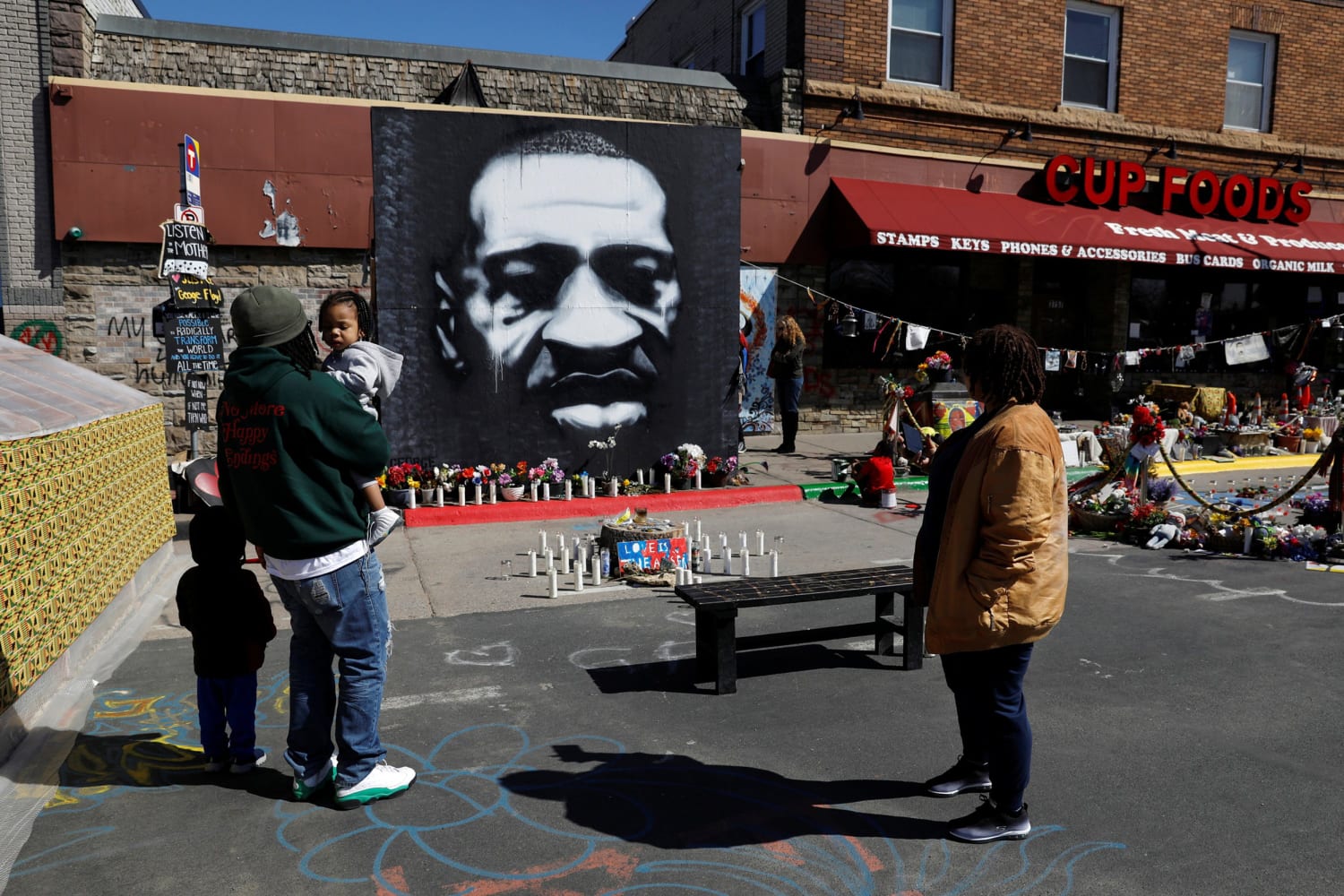Defense tries to use medical examiner findings against prosecution
Derek Chauvin’s defense tried Monday to use the testimony of the medical examiner who performed George Floyd’s autopsy and determined his cause of death against the prosecution.
Attorney Eric Nelson pointed out during closing arguments that Dr. Andrew Baker initially avoided watching the bystander video because he didn’t want it to influence his autopsy. Baker, who has been the chief medical examiner in Hennepin County since 2004, did subsequently watch the video before determining Floyd’s cause of death.
During cross-examination, Dr. Baker acknowledged to the defense that he saw no physical signs of asphyxiation, which contradicted other prosecution expert witnesses who said in their assessments that Floyd died from asphyxia. Those experts also testified that bruises and other injuries do not need to be present to determine that asphyxia occurred.
The medical examiner previously testified that Floyd’s heart disease and drug use contributed to his death, but police officers’ restraint of his body and compression of his neck were still the primary causes.
“Mr. Floyd’s use of fentanyl did not cause the subdual or neck restraint, his heart disease did not cause the subdual or the neck restraint,” Baker said.
Baker ruled Floyd’s cause of death was “cardiopulmonary arrest complicating law enforcement subdual, restraint, and neck compression.” The manner of death was ruled a homicide.
Defense tells jurors state needs to prove multiple other factors did not cause Floyd’s death
Derek Chauvin’s defense told jurors Monday during closing arguments that the state needed to convince them beyond a reasonable doubt that multiple other factors, including George Floyd’s medical history and drug use, did not cause his death.
Attorney Eric Nelson argued that the prosecution had to prove the stress of being arrested, the adrenaline caused by that stress, heart disease, hypertension, excited delirium, a paraganglioma and drugs in his system — or any combination of those factors — didn’t lead to Floyd’s death.
Nelson said testimony from prosecution medical experts on Floyd’s cause of death that excluded these possibilities, “flies in the absolute face of reason and common sense.”
Multiple prosecution witnesses testified they believed Floyd died from a lack of oxygen due to Chauvin’s restraint for more than nine minutes.
Nelson directly targeted Dr. Martin Tobin, a renowned pulmonologist, who was arguably the prosecution’s strongest medical witness. Tobin testified that Floyd died of a lack of oxygen.
Nelson zeroed in on testimony from Tobin that Floyd used his knuckles to push himself up to try to breathe. Nelson said that Floyd was in a side recovery at the moment Tobin described, meaning he should have been able to breathe.
“His entire testimony is based on theory, speculation, assumption,” Nelson said.
Defense: There is ‘absolutely no evidence’ Chauvin intentionally used unlawful force
Derek Chauvin’s defense argued Monday there was “absolutely no evidence that Officer Chauvin intentionally, purposefully applied unlawful force.”
Attorney Eric Nelson said during closing arguments the evidence showed Chauvin was following his training as a police officer during his interaction with George Floyd.
“These are officers doing their job in a highly stressful situation, according to their training, according to the policies of the Minneapolis Police Department,” he said. “And it’s tragic, it’s tragic.”
Defense argues bystanders distracted Chauvin at ‘critical moment’
Derek Chauvin’s defense argued Monday that concerns about the bystanders gathered around the scene of George Floyd’s fatal interaction with police distracted the former officer at the “critical moment” when Floyd took his last breath.
“As this crowd grew more and more upset or deeper into crisis, a very critical thing happens at a very precise moment,” attorney Eric Nelson told jurors Monday afternoon during closing arguments.
He said at that moment, Floyd took his last breath. At the same time, Nelson said Chauvin pulled out his can of pepper spray in response to the crowd’s reactions and another bystander who was an off-duty firefighter approached from behind, “startling him.”
“All of these facts and circumstances simultaneously occur at a critical moment,” Nelson said. “And that changed Officer Chauvin’s perception of what was happening.”
Throughout the trial, the defense has sought to portray the bystanders as a potential concern for the officers’ safety and as a distraction.
Analysis: Defense showing videos of Floyd’s death is a considerable risk
The defense must have felt they absolutely needed the jury to see certain things in the video because there was considerable risk in showing the prosecution’s strongest evidence.
I suspect the prosecution is likely pleased by this decision, reminding jurors of George Floyd repeatedly telling police that he couldn’t breathe.
Defense tells jurors to consider all evidence in determining what a ‘reasonable officer’ would have done
Derek Chauvin’s defense told jurors Monday to consider the “totality of circumstances and facts” known to the former officer when considering if a “reasonable officer” would have restrained George Floyd the way he did.
“The proper analysis is to take those 9 minutes and 29 seconds and put it into the context of the totality of the circumstances that a reasonable police officer would know,” attorney Eric Nelson said in discussing whether Chauvin’s use of force was justified.
The argument seemed an attempt to redirect jurors from a refrain made by the prosecution to jurors during their opening statements and closing arguments, “Believe your eyes.” The prosecution has sought to focus jurors on the more than nine minutes Chauvin knelt on Floyd’s neck as he lay pinned to the ground in handcuffs.
The jurors have seen extensive video footage of Floyd’s fatal encounter with police from multiple angles and from different sources.
Biden to deliver remarks after Derek Chauvin trial verdict
President Joe Biden is expected to deliver remarks after the jury in the Derek Chauvin trial renders a verdict, according to multiple administration officials.
The White House is monitoring the trial’s developments and is preparing a statement for Biden, who has been gaming out with his team for the last two weeks how to react to various verdicts.
The administration has also planned for possible public demonstrations in response to the verdict, including meetings with counterterrorism and homeland security advisers and Cedric Richmond, the White House director of public engagement.
Defense: Derek Chauvin is presumed innocent
Derek Chauvin’s defense attorney began his closing argument Monday by reminding jurors that his client is presumed innocent of the charges he faces over the death of George Floyd and that the prosecution must prove its case beyond a reasonable doubt.
“He’s presumed innocent of these charges and this presumption remains with him throughout the course of the trial, the presentation of the evidence, throughout the course of your deliberations, until and unless the state has proved its case beyond a reasonable doubt,” Eric Nelson said Monday morning.
“The defendant doesn’t have to try to catch up,” he said.
He reminded jurors that “proof beyond a reasonable doubt,” according to the definition read earlier by the judge, was “such proof as ordinary, prudent men and women would act upon in their most important affairs.” Meanwhile, “reasonable doubt” was defined as “a doubt that is based upon reason and common sense,” Nelson said.
“I submit to you that the state has failed to meet its burden of proof beyond a reasonable doubt,” he added.
Chauvin took off his mask for the defense’s closing argument, and looked at the jury while his attorney spoke. He has worn a mask throughout the trial and seemed to be taking notes while both sides argued their cases.
Prosecution: ‘Being large and being on something is not a justification for the use of force’
Prosecutor Steven Schleicher told jurors Monday that George Floyd “being large and being on something is not a justification for the use of force” that Derek Chauvin used against him during his fatal interaction with police.
Schleicher said Chauvin “explained the basis of his actions” to one of the bystanders, 61-year-old Charles Charles McMillian.
In police video, Chauvin could be heard saying in footage to McMillian that Floyd was a “sizable guy” who was “probably on something.”
“His two justifications were that George Floyd was big, and that he might be ‘on something,’” Schleicher said Monday during his closing argument.
Schleicher told the jurors they had heard the standards for use of force during testimony and that officers are authorized to use force “to respond to a threat, they’re not authorized to use force to respond to a risk.”
The attorney said while Floyd could have been a potential “risk,” his size and whether he had taken drugs alone did not make him a “threat” to Chauvin or the other officers and was not a crime.
“When questioned, their force expert witness conceded that the combination of the two, being large and being on something is not a justification for the use of force,” he said of one of the defense witnesses. “It just isn’t. That’s not what they get to do.”
Schleicher said Chauvin’s explanation was “not good enough” and was not following use of force policy or procedure.
“He is not following the rules,” he added.
‘Believe your eyes’: Prosecution has a simple message behind its exhaustive argument
Behind the prosecution’s detailed argument is a simple message to the jury: believe your own eyes.
In his closing argument, prosecutor Steven Schleicher repeated the same maxim with which the prosecution began.
“You can believe your eyes,” said Schleicher, who has relied heavily on video and images of the events leading up to Floyd’s death to make his point.
It is an emotional appeal to the jury and a remarkably straightforward one. It was precisely the video of Floyd’s death that sparked the global uprising last summer and brought people to the streets in protest. Schleicher, it seems, ultimately believes that same video is his best argument for conviction.
“This case is exactly what you thought when you saw it first, when you saw that video. It is exactly that,” Schleicher said. “You can believe your eyes… It’s exactly what you knew. It’s what you felt in your gut. It’s what you now know in your heart. This wasn’t policing; this was murder. The defendant is guilty of all three counts. All of them. And there is no excuse.”
Source: | This article originally belongs to Nbcnews.com












